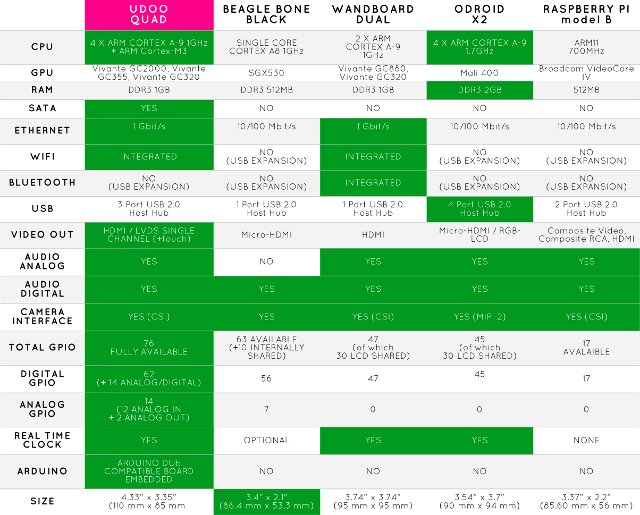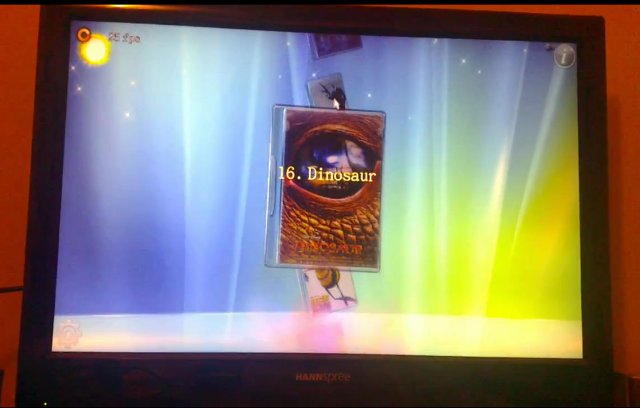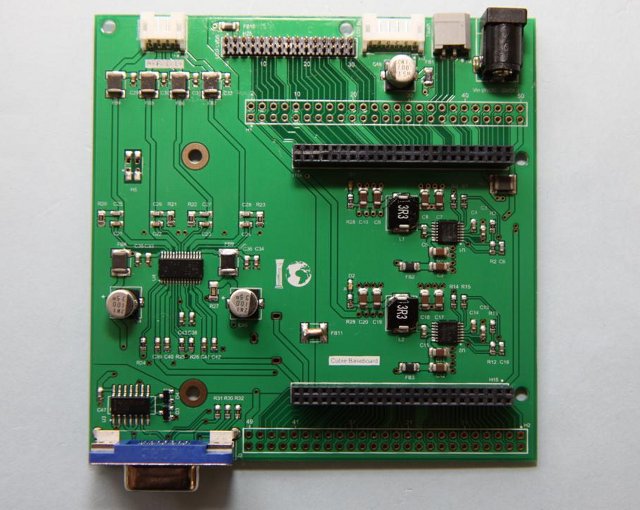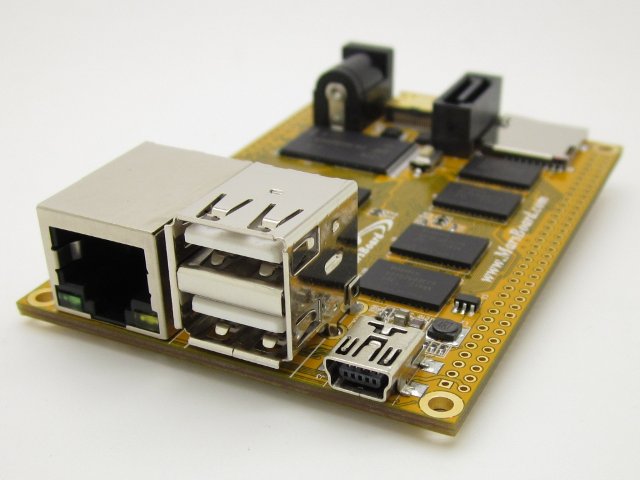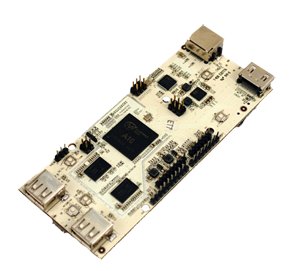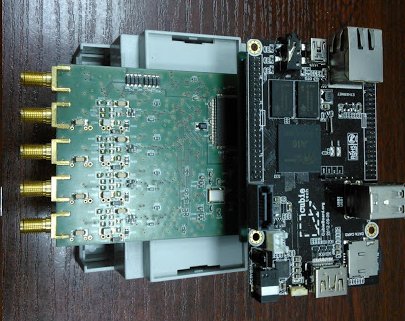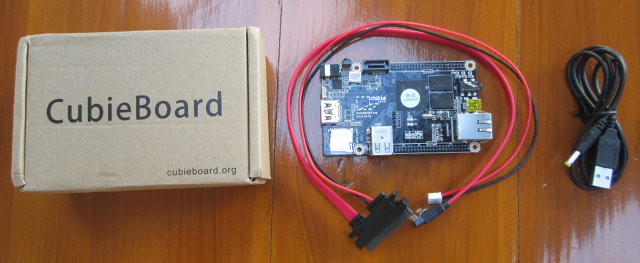UDOO QUAD is a development board featuring both Freescale i.MX 6Quad and an Atmel SAM3 Cortex M3 MCU, that’s currently having a very successful campaign on Kickstarter, as the total amount pledged is now close to $500,000 US. UDOO decided to put a comparison table against four other ARM Linux boards they consider their main competitors: the BeagleBone Black for its numerous I/O options, Wandboard Dual, also a Freescale i.MX6 powered board, the ODROID X2 for its powerful Exynos 4412 processor, and Raspberry Pi model B which is ubiquitous. The Cubieboard board would also have been an interesting addition, but they did not include it. As you would have guessed the green parts in the tablet shows the winner for each features according to UDOO team. These 5 boards vary greatly in terms of price, and since this is not included in the table above, I’ll mention the price of […]
How to Use Libhybris and Android GPU Libraries with Mer (Linux) on the Cubieboard
You may have heard about libhybris, a library that cleverly loads Android HW adaptations and convert calls from bionic to glibc. One of the greatest achievement of this library is to allow Android GPU drivers to be used with Linux, and is notably used by Canonical, although they did not write it, for Ubuntu 14.04 which will be compatible with any recent Android smartphones or tablets. One way to get started with libhybris is to port a device to Ubuntu Touch, but this may take a while. However, I’ve found a faster and easier way to play with libhybris thanks to Martin Brook (vgrade) who wrote a tutorial on how to use libhybris with Mer on the Cubieboard. Mer is an open source mobile Linux distribution powered by Qt/QML and HTML5, that’s born from the ashes of Meego, and is now used in the upcoming Sailfish OS. You’ll need to […]
IO Technologies Announces $29.99 Baseboard for Cubieboard
The Cubieboard is a low cost development board powered by AllWinner A10 with 512MB/1GB RAM, 4GB NAND and lots of interfaces. However some of processor interfaces are only available via the extension headers, and access to interfaces like VGA and LVDS would normally require some (minor) hardware hacking. That’s why George Ioakimedes (IO Technologies LLC) has decided to design and manufacture a carrier board (baseboard) for the Cubieboard. The Cubie baseboard provides the following: 2mm pitch female sockets to insert the Cubieboard All 96 Cubieboard pins brought out to 0.100″ (2.56mm) pitch headers 4-pin power header to match optional power input header on Cubieboard LVDS header with separate LCD Backlight connector to match low cost LVDS cable 4-wire touch screen connector Standard 2.5mm DC jack, 12V-18V input Onboard 5.0V switching regulator to power the Cubieboard and provide 3A (available on 0.100″ header) Onboard 3.3V switching regulator to power LCD and […]
$49.90 MarsBoard is Yet Another AllWinner A10 Development Board
After the tablet based Gooseberry and Hackberry boards, as well as Cubieboard and the upcoming A10-Olinuxino development boards, here’s another development board based on AllWinner A10 called the MarsBoard that looks very similar to the Cubieboard. Here are the key features of the board: SoC – AllWinner A10 Cortex A8 @ 1 GHz + Mali-400 GPU System Memory – 1GB DRAM Storage – 4GB Flash + 1x microSD card (up to 32GB) Video Output – HDMI Audio Output – 3.5mm stereo jack USB – 2x USB host port + 1x microUSB Connectivity – 10/100 M Ethernet SATA Connector Headers – 2x 2.0mm GPIO headers. (140 pins in total) Power Supply Requirements – 5V/2A Dimensions – 80mm x 55mm There’s also a 3.5mm jack but I’m not sure if it’s just for audio in or out, or for composite output. The website is still in construction (basically a modified copy of […]
Final Release of Fedora 18 for AllWinner A10 & A13 Powered Devices
A few months ago, Hans de Goede, currently working at Red Hat and a Fedora contributor, started to show up on linux-sunxi mailing list, and sent a lot of kernel patches for linux-sunxi kernel. Last week-end, he announced “Fedora 18 Final for Allwinner A10 and A13 based devices” on linux-sunxi community mailing list. To install it, first download the image:
|
1 |
wget http://scotland.proximity.on.ca/contrib-images/hansg/Fedora-18-a10-armhfp-r1.img.xz |
And write it to an SD card (all data will be wiped out):
|
1 |
xzcat Fedora-18-a10-armhfp-r1.img.xz > /dev/mmcblk0 |
You may have to replace “/dev/mmcblk0” by your own SD card device, e.g. “/dev/sdc”. AllWinner based devices can share the same kernel, but u-boot is board/products specific, so you’ll have to install u-boot for your board. First remove the SD card, re-insert it in order to automatically mount the FAT partition, and run:
|
1 |
sh <uboot-part-mount>/select-board.sh |
This will show the list of supported boards and products. Then run the command again for your device. For example:
|
1 |
sudo sh <uboot-part-mount>/select-board.sh mk802 |
[…]
$59 pcDuino – AllWinner A10 Board with Arduino Compatible Headers
pcDuino is a new development board based on AllWinner A10 Cortex A8 SoC that comes with 1GB RAM and 2GB NAND Flash, HDMI output, as well as USB and Ethernet RJ45 ports, and is said to feature 2.54mm pin headers compatible with Arduino boards. Here are the pcDuino specifications: SoC – AllWinner A10 ARM Cortex A8 CPU @ 1GHz + Mali-400 GPU System Memory – 1GB DRAM Storage – 2GB Flash + SD card slot for up to 32GB Video Output – HDMI USB – 2x USB 2.0 Host Connectivity: Ethernet – 10/100 Mbps (RJ45) Wi-Fi – Via USB Wi-Fi dongle (not included with the board) Headers – 2.54mm pin headers: 1x UART, 6x ADCs, 2x PWMs up to 24MHz, 14x GPIOs, 1x I2C and 1x SPI. Power Supply – 5V/2A Dimensions – 125mm x 52mm The board comes preloaded with Ubuntu 12.10, but it also supports Android 4.0 ICS. […]
Headless Connected Oscilloscope based on Cubieboard or Beaglebone
Warsaw ELHEP (Electronics for High Eenergy Physics Experiments) Group is currently working on MMS (Mobile Measurement System) Project. This project features what I would call a “headless connected oscilloscope”, which can be detected on the network via SSDP, send the data via Websocket, and display it on iOS, Android, or Windows Phone devices. This oscilloscope does not feature any screen, and receives/transmits data via Ethernet, Wi-Fi, or Bluetooth. The original hardware is based on three main boards: CTI-VMAX – ARM9 with Wi-Fi, Bluetooth, and Ethernet connectivity. ARM SCOPE v1.0.1 with 8 channel ADC. ARM SCOPE v1.0.2 with 4 high speed ADC (100MSPS). The ELHEP researchers have been looking at replacing CTI-VMAX with low cost boards, and after considering several options, they chose to design two versions of their oscilloscope: one based on Cubieboard, and the other on the Beaglebone. So they designed expansions boards for the Cubieboard and Beaglebone in […]
Cubieboard Unboxing and Quick Start Guide
I’ve received another cool board this week with the Cubieboard development board. As a quick reminder, the Cubieboard is the only proper low cost AllWinner A10 development board available, and comes with 512MB/1GB RAM, 4GB NAND Flash, 10/100 MBit Ethernet, HDMI output, 2x USB Host port, 1x USB OTG port, a microSD socket, a SATA interface, an IR sensor and 2 headers to access extra pins such as GPIOs, I2C, SPI,VGA pins, CVBS pins etc… CubieTech had a successful Indiegogo campaign where the 1GB board was available for $59 including worldwide shipping (and as low as $19 for early birds), and you can now buy it from resellers. [Update: It’s now available with several cables, USB to TTL debug board, and an enclosure for $80 on dx.com] Cubieboard Unboxing The board comes with a SATA cable and a USB cable for power. There’s no power supply so you’ll need you […]


